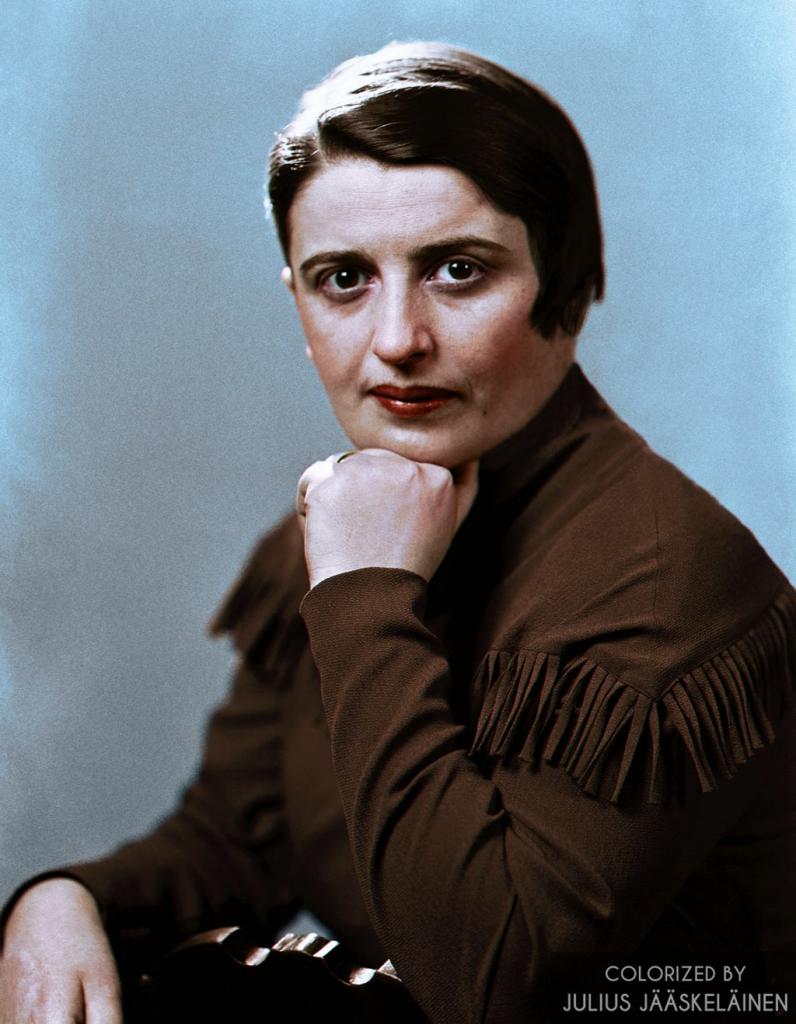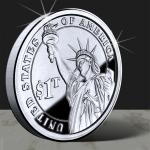Putting together yesterday’s post brought to mind my own experience with right wing atheism, which turned out to be a significant catalyst in my own spiritual pilgrimage. I tell about that pilgrimage, in part, in the new third edition of Spirituality of the Cross, but I didn’t tell about this. So I thought I’d tell you about it.
When I was in high school in Oklahoma in the 1960s, my best friend was a fellow adolescent intellectual. We had lots in common, but at the time I was a liberal–a Kennedy/LBJ Democrat all in for civil rights and the Great Society programs–and my friend was a conservative, a Goldwater Republican. We loved to argue politics. (You might think by today’s standards that it is impossible for people who disagree with each other politically to be friends, let alone best friends, but trust me, this happened back in those days.)
The Vietnam War was going on, as was the draft. My friend and I were still in school and too young to be drafted, but this was hanging over us. At the time, I supported the war–after all, this was LBJ’s war, as started by Kennedy, so I was loyal to that legacy–and, if called, I would have served. Although the anti-war movement had started up, most of our small town, both Democrats and the few Republicans, supported the war, as we saw it, against Communist expansion. (Back then, both political parties were in substantial agreement on foreign policy, particularly when it came to the Cold War against Communism.)
So our town was surprised when my friend’s older brother, a brilliant guy and a star basketball player, fled to Canada to avoid the draft.
I thought your family was all arch-conservative like you, I said to my friend. How did your draft-dodger brother get to be even further to the left than I was?
It wasn’t like that, he explained. My brother isn’t a pacifist. He doesn’t have any moral problem with this particular war. He doesn’t care about any of that stuff. He doesn’t believe he should risk dying for any cause or any person. He believes in the virtue of selfishness. He has been reading Ayn Rand.
I had never heard of this person, so my friend–who was also distraught about what his brother did–explained her beliefs and even lent me some of her books. Basically, she taught that human beings should always follow their individual self-interests. This is how free market capitalism works, and this is how evolution works.
But altruism, the notion that we should do things for other people, to the point of sacrificing ourselves and our interests for others, is the source of all of our personal and social problems. And the great teacher of altruism, the person who introduced the seemingly attractive but really toxic notions of selflessness, charity, and love, is Jesus Christ. Whereas most thinkers, even those hostile to religion, pay at least some tribute to Jesus–honoring Him, trying to co-opt Him to their position, insisting that His followers have understood Him, etc.–Rand pulls no punches in denouncing Jesus, His ethical teachings, and His influence.
She was a rigorous atheist and materialist, who insisted that we must be governed by reason alone. She called her philosophy “objectivism.” She put the highest value on individualism and freedom. Politically, she championed laissez faire freemarket capitalism, a small non-interfering government, and no welfare or social programs of any kind. That gave her impeccable conservative credentials, though her thought has been most influential with libertarians.
Reading Rand was unsettling. I was a mainline liberal Protestant, but I had a general orientation to Christianity and appreciation for Jesus. And since my church mainly taught good works and the social gospel, her critique of morality–particularly the impulse to help other people rather than oneself–was especially disorienting.
My friend and I talked about her ideas, but while we both recoiled from what she was saying, to our eager but immature minds, it was hard to see why she was wrong.
Then one night, my friend told me that he had been born again. God is real. I’ve experienced Him. And Jesus is not just an ethical teacher that you can agree or disagree with. He is the Savior. From that point on, he knew that Ayn Rand was wrong.
My friend’s conversion also helped settled the matter for me. I realized that if God actually exists, an argument, however logical, does not take away His existence. God can manifest Himself in different ways. He is not a philosophical abstraction but a person who can make Himself known, as He did to my friend.
But I couldn’t relate to all this Baptist stuff from my friend. As a matter of fact, he went on to become a Baptist minister. But, mainline liberal Protestant that I was, his new religiosity was alien to me, though we still remained friends.
Later, though, I had my own epiphany. My friend and I pooled our money to buy J. R. R. Tolkien’s Lord of the Rings trilogy. I was blown away by it. My reactions were well-expressed by one of the blurbs on the back of the paperback edition: “here are beauties which pierce like swords or burn like cold iron.” Exactly!, I thought. And I remembered the name of the person who said that: C. S. Lewis.
When I was browsing in a bookstore during a trip to Tulsa, I recognized the name on a book. I opened it up and saw that it was dedicated to J. R. R. Tolkien. The book was Screwtape Letters. When I read the introduction I recognized an intellect of the highest order who seemed to be taking concepts like the Devil and Christianity with total seriousness. And the book itself was a comical and artistic masterpiece. I had to read more from this C. S. Lewis.
What I appreciated from Mere Christianity is that Lewis shows that Christianity, contrary to what Rand said, is reasonable, that there is a rational case for Christianity. And Lewis was far more learned, far more humane, far more open to the vast range of life than the the narrow, harsh, and angry Rand. And Lewis’s Abolition of Man, his defense of objective morality, completely demolished Rand’s dismissal of traditional ethics.
In the meantime, I also learned what Christianity is, something neither Rand nor my liberal church seemed to grasp. I learned that Jesus Christ is God in the flesh. And The Lion, the Witch, and the Wardrobe taught me what it meant that Jesus died for my sins.
Thus started the long and winding road to Lutheran Christianity, which I tell about from that time forward in the third edition of Spirituality of the Cross.
But even Ayn Rand played a part in that.
As for how I became politically conservative, that is a story for another day.
Photo: Ayn Rand by Julius Jääskeläinen, CC BY 2.0 <https://creativecommons.org/licenses/by/2.0>, via Wikimedia Commons












